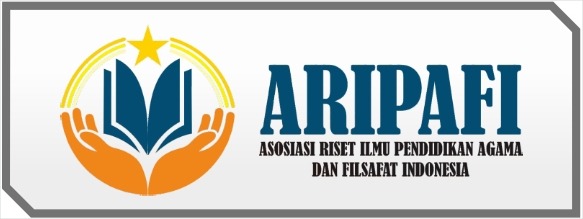Interdisciplinary Drivers of Fiqh Muamalah: Social, Economic, and Technological Perspectives
DOI:
https://doi.org/10.61194/ijis.v2i2.604Keywords:
Fiqh Muamalah, Islamic Finance, Shariah Compliance, Financial Literacy, Fintech In Islam, Islamic Economic Policy, Maqasid Al-ShariahAbstract
This narrative review investigates the application of fiqh muamalah in contemporary Islamic economic systems, focusing on its integration within social, economic, and technological domains. The objective is to evaluate how various structural and contextual factors influence the implementation of Islamic jurisprudential principles in modern finance. Literature was sourced from Scopus, Google Scholar, JSTOR, and other scholarly databases using thematic keyword searches. Criteria for inclusion prioritized peer-reviewed, empirical, and interdisciplinary research published within the past fifteen years. The results indicate that the success of fiqh muamalah is influenced by educational levels, cultural values, income levels, financial accessibility, and the adoption of fintech solutions. Social factors such as financial literacy and community engagement promote public acceptance, while economic conditions like macroeconomic stability and inclusive financial systems support adoption. Technological innovations such as blockchain and smart contracts offer new opportunities, although their alignment with Shariah principles requires regulatory clarity. Comparative and empirical findings reveal that countries with coherent regulations and community-focused financial literacy programs show higher levels of integration. The discussion emphasizes the urgency of overcoming systemic barriers such as regulatory fragmentation, institutional resistance, and educational limitations. Interdisciplinary Drivers of Fiqh Muamalah: Social, Economic, and Technological Perspectives.
References
Abdullahi, A. (2019). Islamic economic jurisprudence and environmental sustainability: A policy perspective from OIC member states. Journal of Islamic Economics, 14(1), 33–47.
Al-Hakim, M. A. (2019). The maqasid al-shariah perspective in Islamic economic development. Journal of Islamic Economics and Finance, 10(2), 77–91.
Alsawady, A. A., Zainuddin, N. H., & Hanif, M. (2022). Islamic ethics in contemporary finance: Toward inclusive and ethical markets. Journal of Islamic Ethics, 6(1), 101–118.
Baihaqqi, M. A., & Nuzula, N. F. (2022). Challenges in aligning fiqh muamalah with contemporary business practices: A qualitative review. Jurnal Ekonomi Syariah, 20(2), 124–135.
Faidah, A., Yusuf, M., & Rahman, T. (2021). Mobile-based community education for Islamic financial literacy: A case study from Indonesia. Journal of Community Empowerment, 7(3), 142–158.
Fakhrina, D., & Islahuddin, M. (2023). Fatwa development and the Indonesian economic system: A fiqh muamalah perspective. Islamic Law and Economics Journal, 15(1), 62–78.
Fakhruddin, H., Zainal, S., & Kamal, R. (2025). Moderation in fatwa development for financial innovation: The DSN-MUI approach. Journal of Islamic Jurisprudence and Finance, 12(1), 44–61.
Haryoso, B. (2017). Resistance to innovation in Islamic financial institutions: Cultural and structural causes. Jurnal Manajemen Syariah, 5(1), 21–34.
Hasanudin, I., Rahmatullah, S., & Nuraeni, R. (2023). Dynamic fiqh interpretation for Islamic financial governance in Indonesia. Journal of Shariah Economic Studies, 11(1), 91–110.
Hidayatullah, S. (2020). Legal harmonization of Islamic finance and national regulation in Indonesia: Challenges and solutions. Journal of Legal Studies in Islam, 8(2), 203–218.
Kamila, A., Sari, F., & Malik, H. (2022). Gender inclusion in Islamic finance: Enhancing transparency through women’s leadership. Journal of Islamic Gender Studies, 9(1), 37–52.
Khaleel, F., & Avdukić, A. (2024). Islamic market ethics: Bridging traditional values and modern systems. Journal of Faith-Based Economics, 13(1), 67–80.
Khusna, N. A., Suwondo, T., & Alif, M. (2021). Ethical dimensions of Islamic economic behavior: A review of fiqh muamalah education. Journal of Islamic Moral Economy, 6(2), 117–129.
Kızılkaya, A. (2019). Islamic peer-to-peer lending: A new frontier in Shariah-compliant finance. Journal of Emerging Islamic Finance, 3(2), 88–97.
Kusnan, M., Rahmah, N., & Idris, A. (2022). Maqasid al-shariah in digital financial transactions: Collective ijtihad as a legal strategy. Islamic Economics and Finance Review, 14(1), 99–113.
Majid, N. A., Salleh, M., & Fikri, R. (2024). Islamic fintech and financial inclusion: A bibliometric review. Journal of Islamic Digital Economy, 2(1), 40–58.
Milenia, L., Hafizh, A., & Samad, F. (2023). Shariah compliance of SISKEUDES village budgeting systems in Indonesia. Journal of Islamic Public Administration, 5(2), 91–106.
Mustafa, M. R., Iqbal, M., & Salim, A. (2016). Islamic economics research through Scopus lens: A global survey. International Journal of Islamic Research, 8(2), 134–149.
Mustofa, A. R., Fauzan, R., & Latifah, N. (2023). Barriers to public understanding of fiqh muamalah: An educational review. Journal of Islamic Financial Literacy, 4(1), 20–33.
Pauzi, A. F., Haron, M., & Mansor, N. (2023). Fiqh innovation in the age of digital finance: A collective ijtihad approach. Journal of Islamic Jurisprudence and Contemporary Issues, 9(1), 55–70.
Purnama, B., & Yuliafitri, H. (2019). Evaluating Islamic financial literacy campaigns: Lessons from Indonesian initiatives. Islamic Education and Communication Journal, 7(2), 72–84.
Rahmanto, B. (2019). Individual financial literacy and its effect on Shariah financial behavior in Indonesia. Journal of Islamic Finance Behavior, 4(3), 101–119.
Rafikov, R., & Akhmetova, E. (2020). Interdisciplinary approaches in Islamic economic jurisprudence: Toward a holistic model. Journal of Islamic Economic Integration, 10(2), 89–107.
Renie, A., Hasan, S., & Fikri, L. (2020). Challenges in synchronizing Islamic financial fatwas and national law. Jurnal Hukum Ekonomi Syariah, 9(1), 54–70.
Srimulyani, E. (2021). Diaspora Muslim communities and adaptive fiqh: A study from South Korea. Asian Journal of Islamic Studies, 12(1), 77–94.
Tahir, S. (2017). Digital finance in Islamic economies: Opportunities and risks. Journal of Digital Islamic Economy, 5(2), 66–82.
Zikri, H., Anisa, L., & Yani, D. (2024). Shariah financial education in Islamic senior high schools: A program evaluation. Journal of Islamic Curriculum Studies, 8(1), 88–103.






